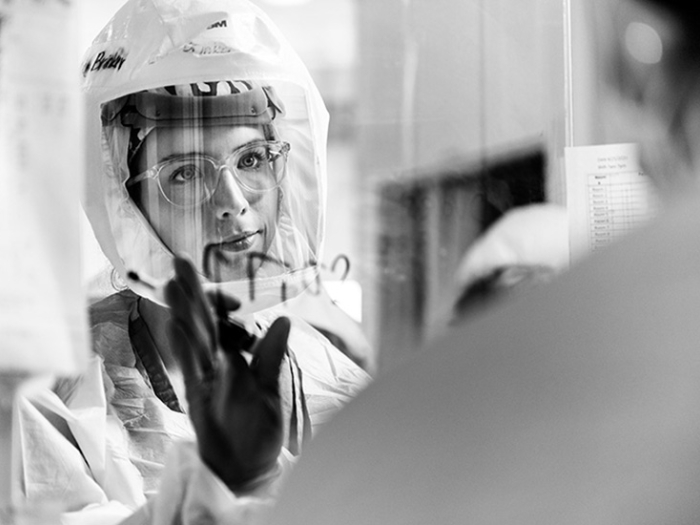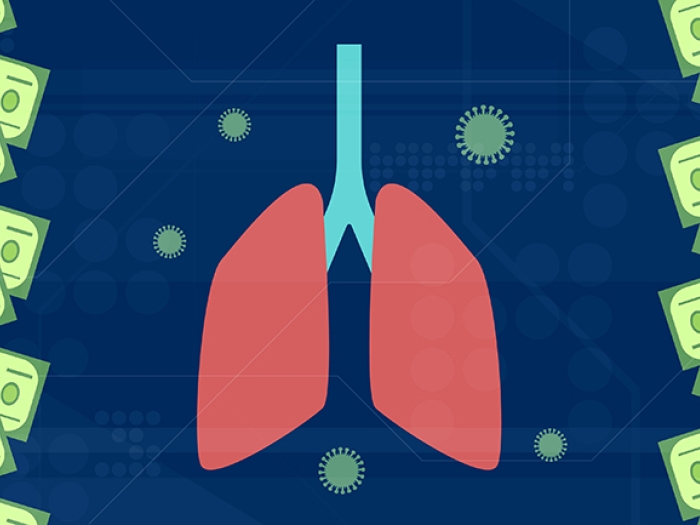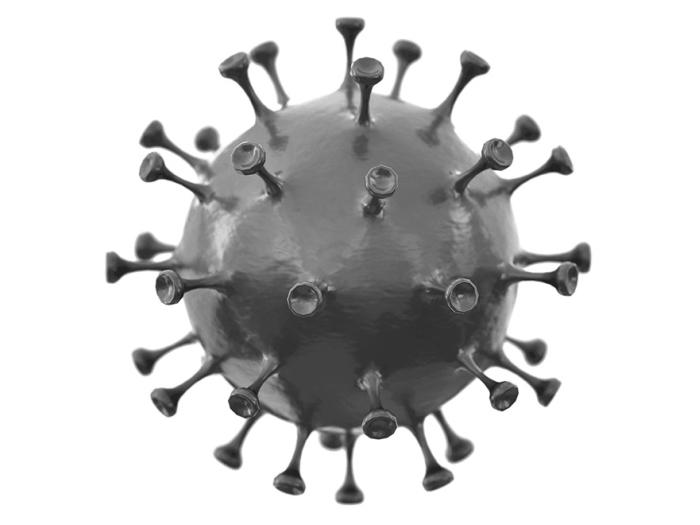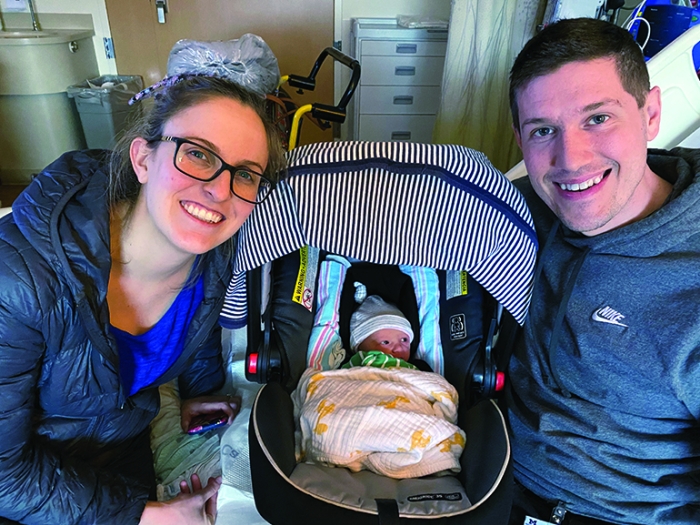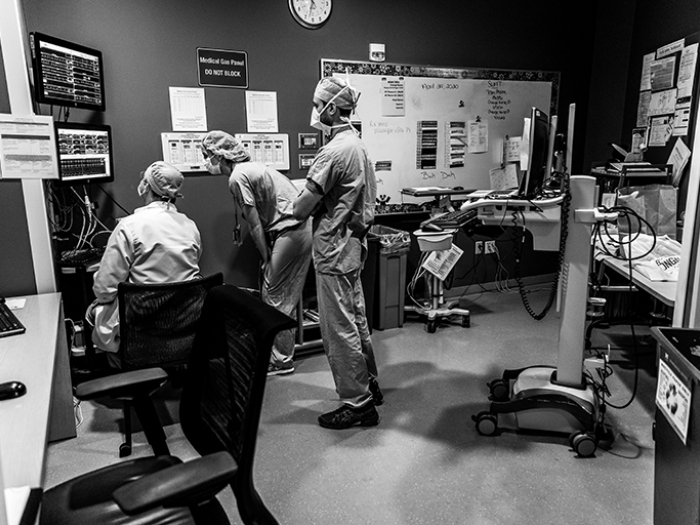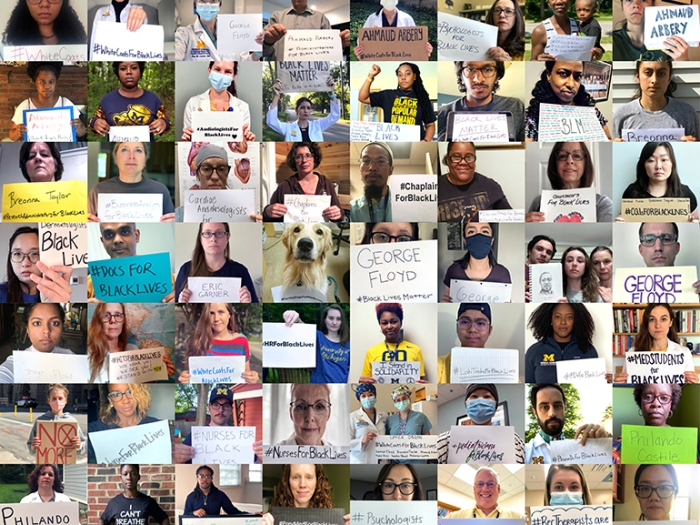Michigan Medicine staff and faculty reflect on the silver linings of the pandemic.
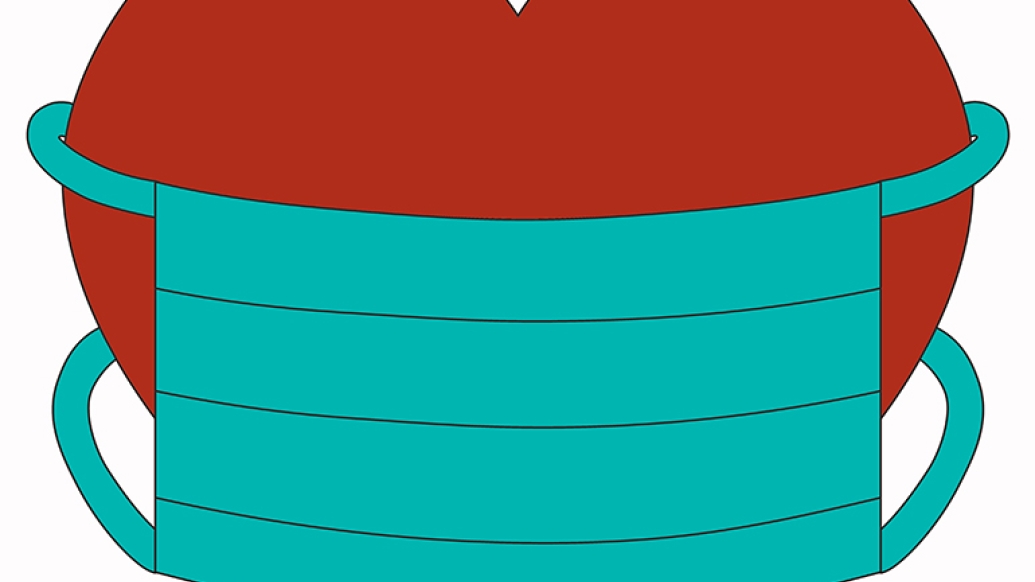
"First and foremost, this is not a pandemic that is going to end any time soon. We need to be in a constant mode of pandemic preparedness and recovery. The pandemic is forcing innovation out of desperation. … One example of a change that will stay with us is telemedicine. Studies have shown that about 4% of all visits in the country and at Michigan Medicine are telemedicine. Preliminary numbers show those numbers are up, and I think we will continue to see an upward trend."
Mahshid Abir, M.D. (M.Sc. 2011), associate professor of emergency medicine
"I'd like to have changes not made under emergency circumstances, but this shows that if something needs to happen, we can make it happen. We can make policies change very quickly, if we need to. All the barriers we saw before, they weren't insurmountable. The hospital needs to remain flexible. That will be beneficial for our patients, the reason we're here, and help employees to make our jobs more effective, more efficient, and give a better home/work balance, because sometimes health care doesn't do a good job at that."
Brinton Robison, PA
"We've all learned to appreciate each other more. I hope that continues. We just realized how much each other does. Like the respiratory therapists — you realize how much they're doing, how much they're risking their lives. Now I realize how much appreciation I have for them."
Preet Shokar, RN
"The volunteerism and openness to change have been incredible. We have been able to cut the red tape and bureaucratic delays in a manner I thought impossible before the pandemic. … It has taken less time for us to stand up three new inpatient medical teams than it usually takes to hang a picture in one of the faculty member's offices."
Sanjay Saint, M.D., professor of internal medicine. Source: Forbes
"One of the things about conserving PPE [is] you try to minimize room entry. [When] people come by to collect the garbage, instead of them coming into the room, it's better for you to wrap up the garbage and hand it to them. In normal times, no one would ever ask a doctor to handle garbage bags. But these aren't normal times. I was happy to bag garbage, move a patient with the nurses, or whatever I could do if I was already in the room. I hope that does continue going forward. No one feels like they're special. Everyone feels like we're in this together. You create this culture of positivity and keep the morale really high."
Valerie Vaughn, M.D., M.Sc., assistant professor of internal medicine
